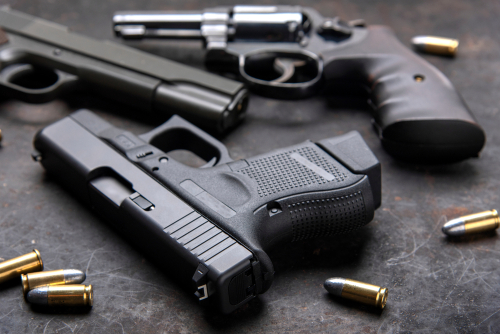
A collection of 25 House members wrote to Bureau of Alcohol, Tobacco, and Firearms (ATF) Director Steve Dettelbach asking for details on the agency’s gun tracing backlog and stating that a gun lobby-backed 1986 law needs to change.
Led by U.S. Reps. Dina Titus (D-NV) and Bill Pascrell, Jr. (D-NJ), the lawmakers blasted the Firearm Owners’ Protection Act of 1986, which expressly forbade the ATF from maintaining a searchable and centralized gun transaction database. That same law has served as a foundation for numerous appropriations riders over the years that added further restrictions on firearm tracing capabilities. As a result, the representatives noted, each firearm used in a crime can only be traced through a page-by-page search at the National Tracing Center in West Virginia.
Naturally, that created a bottleneck and major investigatory delays over the years.
“We write to express concerns regarding the increasingly long periods of time it is taking to process crime gun tracing requests from state and local law enforcement agencies,” the writers’ letter said. “This has been a consistent problem within the Bureau of Alcohol, Tobacco, Firearms, and Explosives National Tracing Center, and we are concerned about law enforcement’s ability to conduct thorough and timely investigations given increased delays at the federal level.”
The effects have trickled down – with the ATF unable to move swiftly, local law enforcement relying on those details also find themselves stymied. In 2020, the NTC reportedly received 490,000 trace requests from law enforcement agencies – a 43.1 percent increase in requests over the previous 10 years. Figures rose even higher in 2021. Despite this, the lawmakers noted that they have learned the NTC requires approximately two weeks for each routine gun trace.
While freely admitting it was unlikely congressional Republicans would negotiate to modify the Firearm Owners’ Protection Act or remove the riders that limited ATF’s gun tracing modernization capabilities, the writers stated their belief that the status quo is unsustainable. They also asked Dettelbach for details on the status of the gun tracing backlog, what ATF is currently doing to mitigate said backlog and how the agency chooses to expedite tracing requests for certain criminal investigations.
Pushing for what-ifs, they further questioned how much time and resources the ATF could save if it could maintain a centralized database on firearm transactions and what dedicated funding could correct the issue, absent any new legislation.




